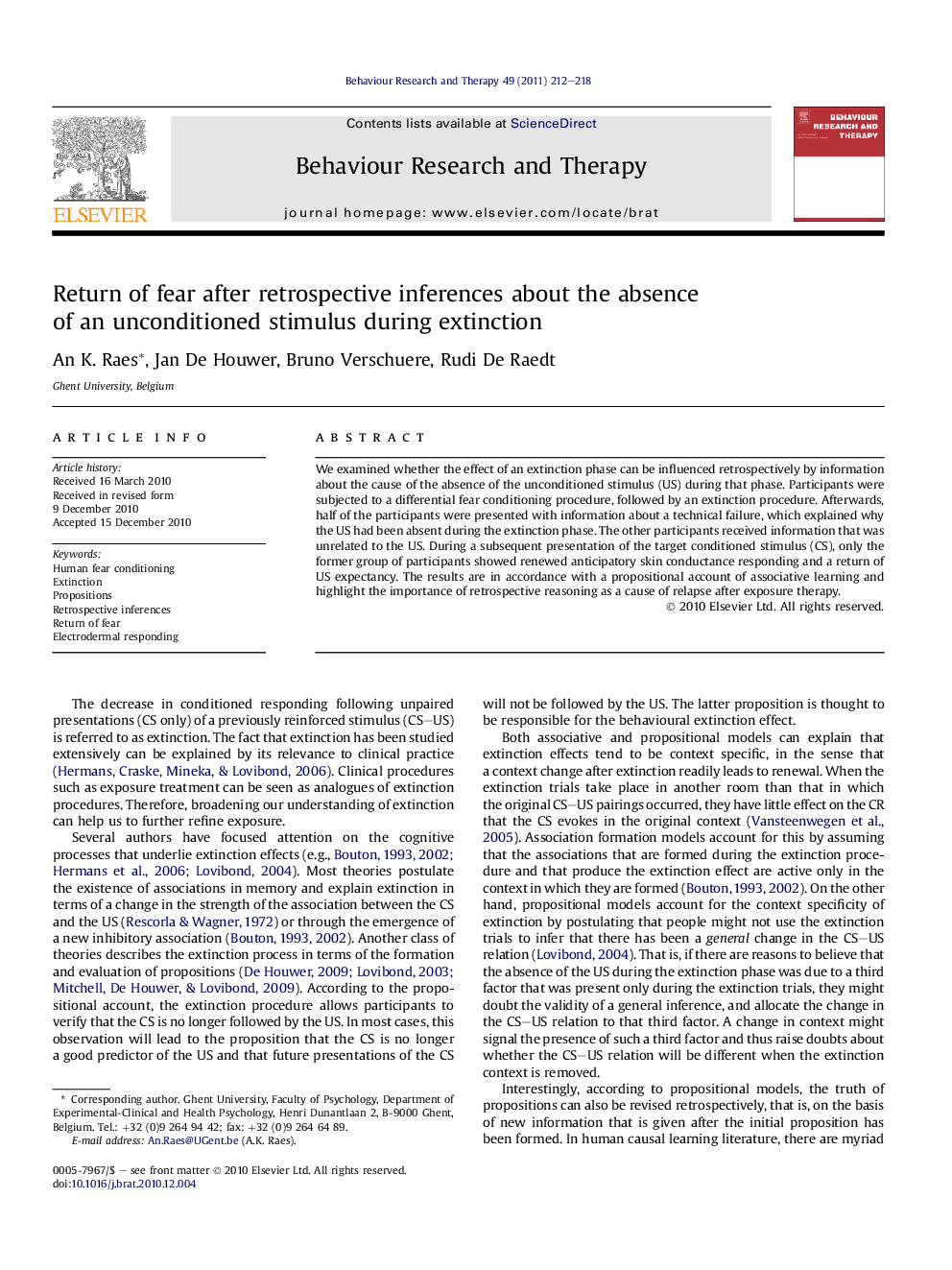| Article ID | Journal | Published Year | Pages | File Type |
|---|---|---|---|---|
| 10444519 | Behaviour Research and Therapy | 2011 | 7 Pages |
Abstract
We examined whether the effect of an extinction phase can be influenced retrospectively by information about the cause of the absence of the unconditioned stimulus (US) during that phase. Participants were subjected to a differential fear conditioning procedure, followed by an extinction procedure. Afterwards, half of the participants were presented with information about a technical failure, which explained why the US had been absent during the extinction phase. The other participants received information that was unrelated to the US. During a subsequent presentation of the target conditioned stimulus (CS), only the former group of participants showed renewed anticipatory skin conductance responding and a return of US expectancy. The results are in accordance with a propositional account of associative learning and highlight the importance of retrospective reasoning as a cause of relapse after exposure therapy.
Related Topics
Health Sciences
Medicine and Dentistry
Psychiatry and Mental Health
Authors
An K. Raes, Jan De Houwer, Bruno Verschuere, Rudi De Raedt,
